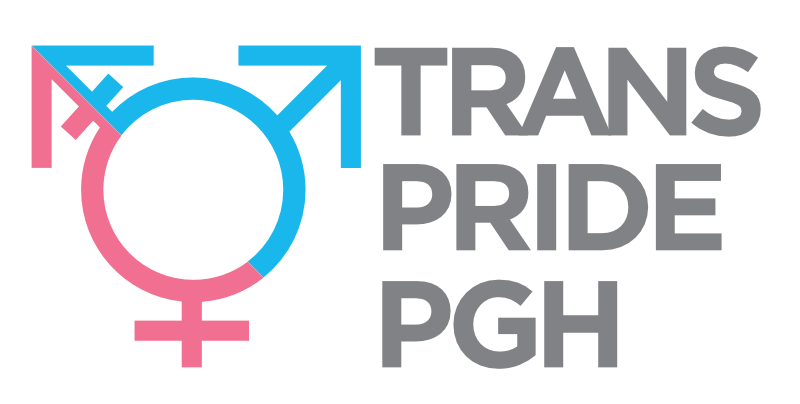While the TransPride YOUniting Health & Wellness Conference is primarily virtual, streaming through Zoom via the Whova events platform, the institutional and community organizing partners are based in Pittsburgh, PA
The organizers acknowledge that we live and work on the traditional ancestral lands of the people of the Haudenonsaunne Confederacy, an association of six sovereign Native nations belonging to the Iroquoian language family. Historically this land has been called home by the Onondowa’ga nation, commonly known as the Seneca.
The Seneca people historically maintained a presence just north of the Allegheny River in the Sharpsburg region under the head chief Guyasutta, and in the area now occupied by the town of McKeesport under clan mother Alliquippa, both adjoining the area now known as Pittsburgh. Further north along the Allegheny in Warren County the Seneca maintained a community called Jenushedago and known to non-Natives as the Cornplanter Grant, which continued to exist there as an officially recognized Indian reservation until it was forcibly terminated via the efforts of the U.S Army Corps of Engineers in 1964. A few Seneca families still live in and around Pittsburgh.
During the late 1600's and early 1700's, the Haudenonsaunne gave permission to other non-Iroquoian Indigenous communities who migrated from the east and south as a result of encroachment by European settlement. These included people such as the Lenapi (Delaware) from the eastern Pennsylvania region and the Shawnee from Kentucky. The Lenapi settled in what is now the Lawrenceville/Arsenal Park neighborhood of Pittsburgh, a village called Shannopin's Town, while the Shawnee established a village in Kittanning on the Allegheny River north-east of Pittsburgh.
We acknowledge the displacement of the Seneca (as recently as 1965) and other native languages and cultures that have been severely damaged or lost due to forced removal and assimilation. We honor the original caretakers of this region and uplift their historic, unique, and enduring relationship with this land, which is their ancestral territory.
As representatives of a community that faces discrimination, oppression, and stigma, along with those that care for us, we pay our respects to the Elders and their past, present and future people, community, and culture.
We acknowledge the intersection of the many traditional sexual and gender identities found across the First Nations of this continent, now often represented by the Native term “Two-spirit”, and our own western concepts of transgender, nonbinary, and otherwise gender diverse people. and how they, and all Native people were harmed and oppressed in the past and continue to be harmed today.
While we cannot change the past, we are committed to learning and supporting indigenous communities today and in the future, especially those who are gender diverse. We have a duty to attend to the intersectional identities and power systems of race, ethnicity, gender and sexual identity, language, faith, class, and ability, to build a more just and equitable future where all are welcome and treated with dignity and respect.
The organizers acknowledge that we live and work on the traditional ancestral lands of the people of the Haudenonsaunne Confederacy, an association of six sovereign Native nations belonging to the Iroquoian language family. Historically this land has been called home by the Onondowa’ga nation, commonly known as the Seneca.
The Seneca people historically maintained a presence just north of the Allegheny River in the Sharpsburg region under the head chief Guyasutta, and in the area now occupied by the town of McKeesport under clan mother Alliquippa, both adjoining the area now known as Pittsburgh. Further north along the Allegheny in Warren County the Seneca maintained a community called Jenushedago and known to non-Natives as the Cornplanter Grant, which continued to exist there as an officially recognized Indian reservation until it was forcibly terminated via the efforts of the U.S Army Corps of Engineers in 1964. A few Seneca families still live in and around Pittsburgh.
During the late 1600's and early 1700's, the Haudenonsaunne gave permission to other non-Iroquoian Indigenous communities who migrated from the east and south as a result of encroachment by European settlement. These included people such as the Lenapi (Delaware) from the eastern Pennsylvania region and the Shawnee from Kentucky. The Lenapi settled in what is now the Lawrenceville/Arsenal Park neighborhood of Pittsburgh, a village called Shannopin's Town, while the Shawnee established a village in Kittanning on the Allegheny River north-east of Pittsburgh.
We acknowledge the displacement of the Seneca (as recently as 1965) and other native languages and cultures that have been severely damaged or lost due to forced removal and assimilation. We honor the original caretakers of this region and uplift their historic, unique, and enduring relationship with this land, which is their ancestral territory.
As representatives of a community that faces discrimination, oppression, and stigma, along with those that care for us, we pay our respects to the Elders and their past, present and future people, community, and culture.
We acknowledge the intersection of the many traditional sexual and gender identities found across the First Nations of this continent, now often represented by the Native term “Two-spirit”, and our own western concepts of transgender, nonbinary, and otherwise gender diverse people. and how they, and all Native people were harmed and oppressed in the past and continue to be harmed today.
While we cannot change the past, we are committed to learning and supporting indigenous communities today and in the future, especially those who are gender diverse. We have a duty to attend to the intersectional identities and power systems of race, ethnicity, gender and sexual identity, language, faith, class, and ability, to build a more just and equitable future where all are welcome and treated with dignity and respect.

